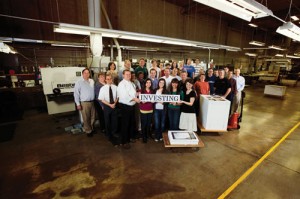
Donations from BYU employees have reached an all-time high, and employees are investing in scholarship funds for their student colleagues.
In 2004 Rolando Velasquez Rodriguez (BS ’09) and his family moved from Honduras so he could attend BYU. “We sold everything we had that was worth anything,” remembers Cecilia, Rolando’s wife. In 2007—“the year we ran out of money” as Cecilia calls it—Rolando, employed at Wyview through Student Auxiliary Services (SAS), applied for and received an SAS grant.
Funded completely by full-time employees for student employees, SAS grants represent a growing trend in BYU’s annual employee giving campaign: full-time employees are giving to their own student employees through departmental scholarships. “We’ve doubled employee giving participation,” says M. Kirk Dougher, director of the Counseling and Career Center (CCC). “The more employees learn about our scholarship program, the more they give.”
SAS, Print and Mail Production Center (PMPC), Grounds Maintenance, and the CCC have established scholarships for their student employees, and others are following suit. And in the last four years, employee giving has increased from 62 percent to 75 percent, an all-time high for BYU. Employee Giving officials say these scholarships are a significant part of the increase, perhaps because of the personal element: those donating to these scholarships know their students’ unique circumstances. Justin T. Scholes (’10), a PMPC scholarship recipient, says his employers treat him like family. “They tell me that they’d like to keep me around for good, and in the same breath tell me how great I will be when I move on to my career in teaching,” he says.
Rolando, who completed his master’s degree in civil engineering in August and will be returning to Honduras, can attest to that personal connection. “I knew a lot of the people I worked for,” he says. “I was humbled to see them giving back . . . . They were willing to put their money where their heart was.”









